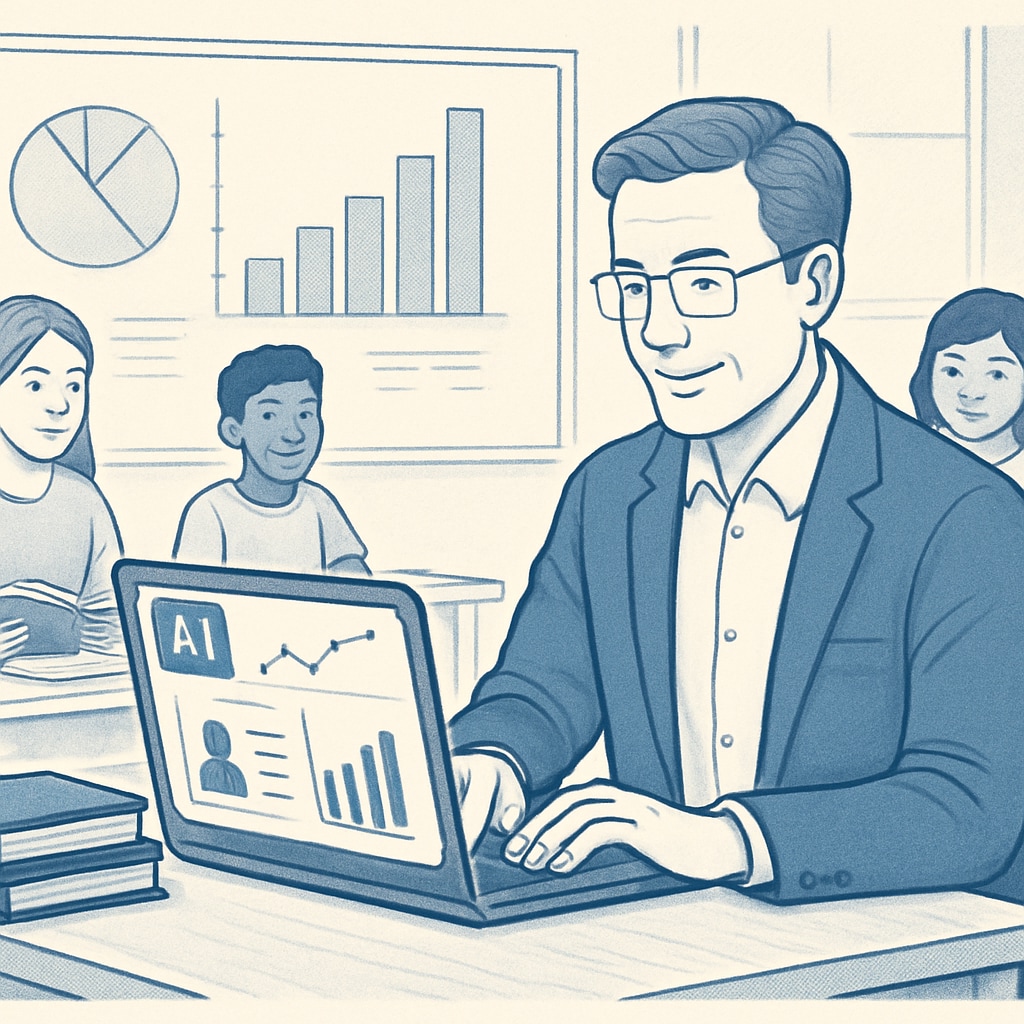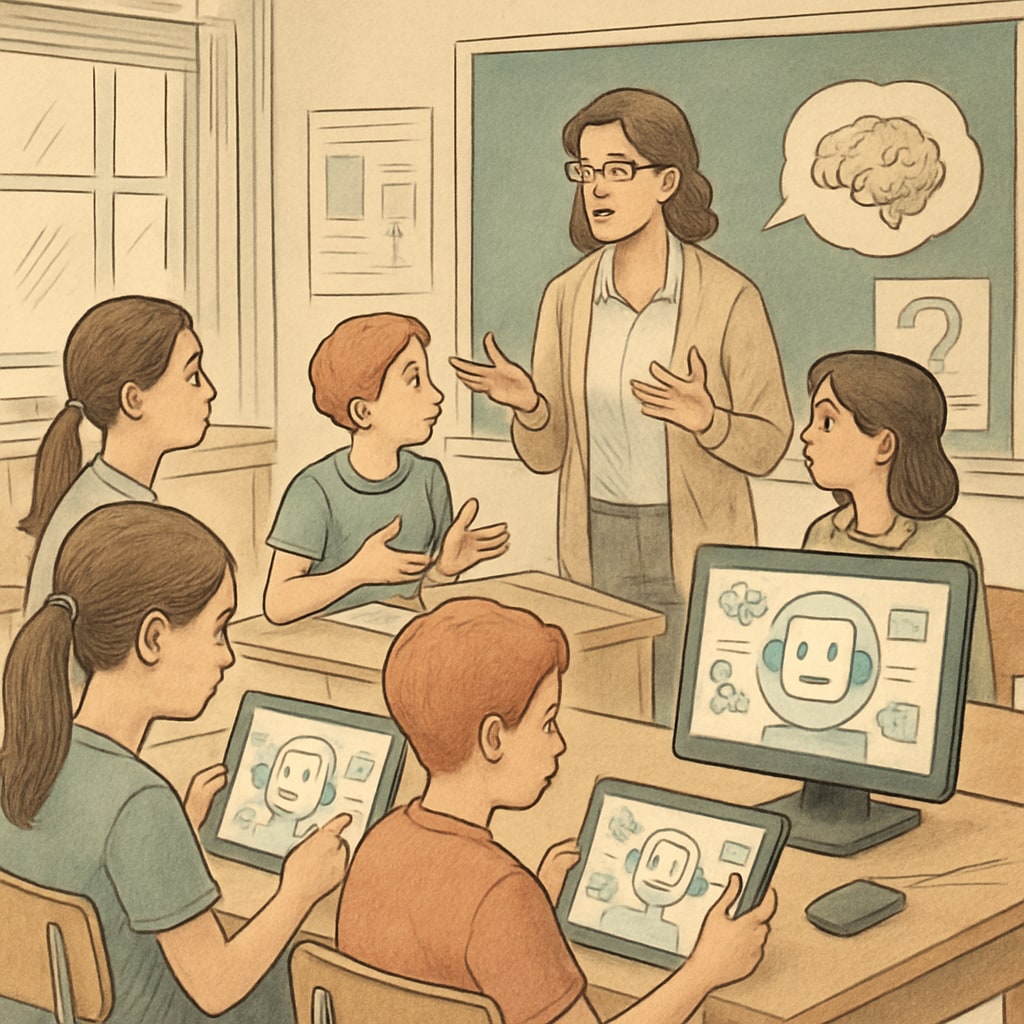AI education applications, teacher value, and technical skills are transforming the teaching profession. With the rapid integration of AI technologies like Google Gemini into classrooms, educators are witnessing a paradigm shift in their roles. These advancements promise greater efficiency and personalized learning for students, yet they also raise critical questions about the value of traditional teaching methods and the economic worth of educators in the AI-driven landscape.
How AI Is Reshaping Teaching Roles
The integration of AI tools, such as Google Gemini, has significantly streamlined many aspects of teaching. For example, tasks like grading, lesson planning, and providing personalized feedback have become faster and more accurate. Such tools enable teachers to focus on more creative and interpersonal elements of education. According to Educational Technology on Wikipedia, AI can adapt to each student’s learning pace, offering tailored educational experiences that were previously unimaginable.
However, this increased reliance on technology shifts some of the traditional responsibilities of teachers to machines. As AI grows more capable of handling repetitive tasks, the need for educators to demonstrate unique human qualities—such as emotional intelligence, mentorship, and the ability to inspire—becomes paramount. This shift forces teachers to evolve, not only in their teaching styles but also in their technical skills to effectively integrate AI into their classrooms.

Teacher Value in an AI-Enhanced Classroom
While AI promises to enhance educational outcomes, it inadvertently raises concerns about the perceived value of teachers. If AI can handle grading, lesson customization, and even tutoring, what role do educators truly play in the learning process? This is where the concept of “teacher value” comes into play. Teachers must redefine their value proposition by emphasizing their irreplaceable human skills—such as empathy, adaptability, and the ability to nurture critical thinking.
In addition, the introduction of AI tools creates an opportunity for teachers to position themselves as leaders in technology integration. Schools increasingly require professionals who are not only proficient in traditional teaching methods but also skilled in using cutting-edge educational technologies. This dual expertise can enhance a teacher’s bargaining power when it comes to salary negotiations.
For example, a report from Britannica on Artificial Intelligence highlights the growing need for “hybrid professionals” who seamlessly combine human-centered skills with technological fluency. Teachers who embrace this hybrid model can carve out a unique niche, ensuring their roles remain indispensable in an AI-driven world.

Balancing the Paradox: AI Empowerment and Job Security
Despite the many advantages of AI education applications, they also create a paradox for educators. On one hand, these tools empower teachers by automating mundane tasks and enabling personalized learning. On the other hand, they threaten job security by making certain teaching roles redundant.
To address this paradox, educators must proactively adapt. Here are some strategies teachers can consider:
- Upskilling: Invest in learning AI and other technological tools to stay ahead in the profession.
- Specialization: Focus on areas where human skills are irreplaceable, such as student mentorship and emotional support.
- Collaboration: Work alongside AI tools rather than competing with them, leveraging their strengths to enhance teaching effectiveness.
As a result, the teaching profession can evolve rather than diminish, with educators playing a pivotal role in shaping how AI is implemented in schools. By adopting these strategies, teachers can maintain their relevance and even increase their value in the education ecosystem.
Conclusion: A Future of Coexistence
The rise of AI education applications, teacher value reassessment, and the need for technical skills underscore a crucial juncture for the teaching profession. While AI holds the potential to revolutionize education, it is ultimately the educators who will determine its success. By embracing technology, redefining their roles, and advocating for fair compensation, teachers can thrive in this new era of education.
As we move forward, the challenge lies not in resisting AI but in leveraging its power to enhance the unique qualities that only human teachers can provide. In doing so, the teaching profession can emerge stronger and more dynamic than ever before.
Readability guidance: Short paragraphs and lists summarize key points effectively. Active voice is used throughout the article, with transitions like “however,” “as a result,” and “in addition” ensuring smooth flow. AI’s impact on teacher value and skills is explored comprehensively, with external references providing additional credibility.


